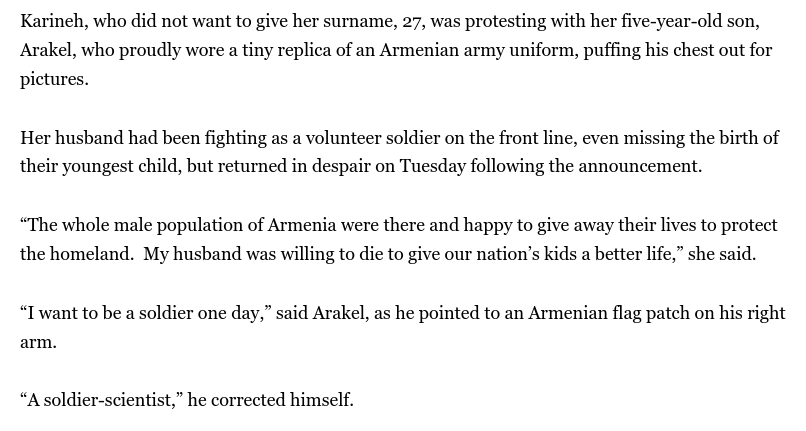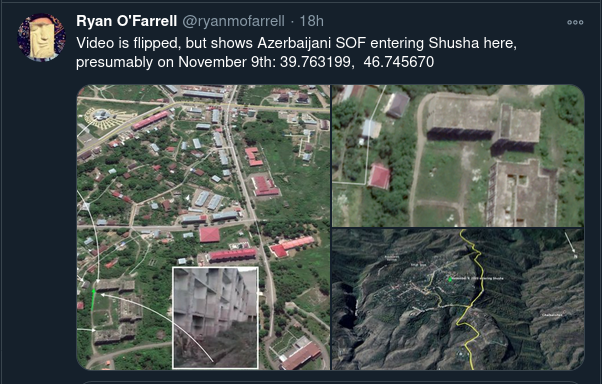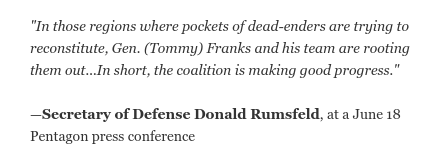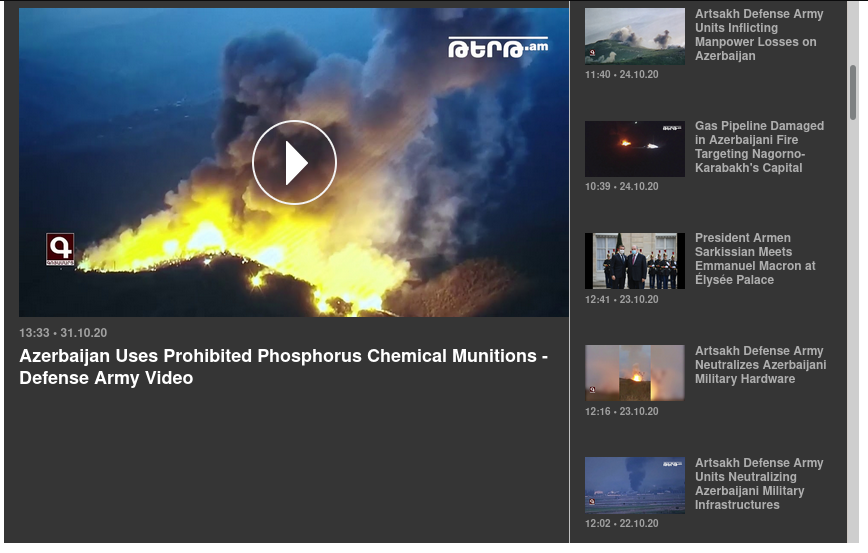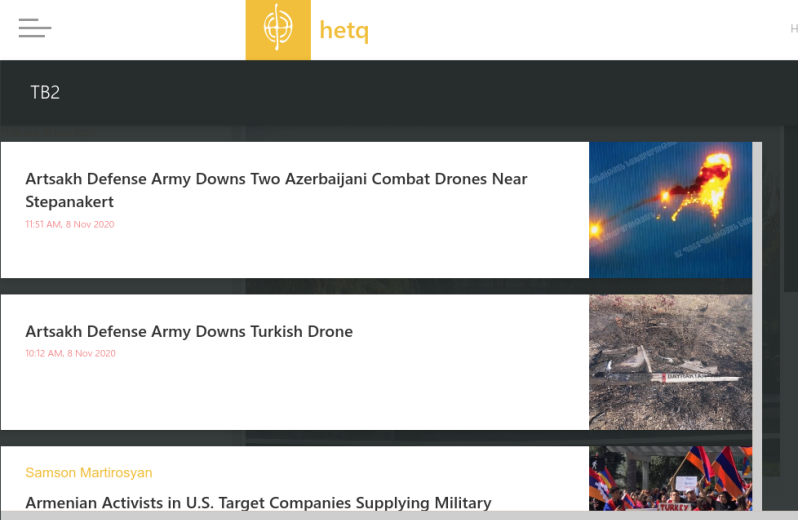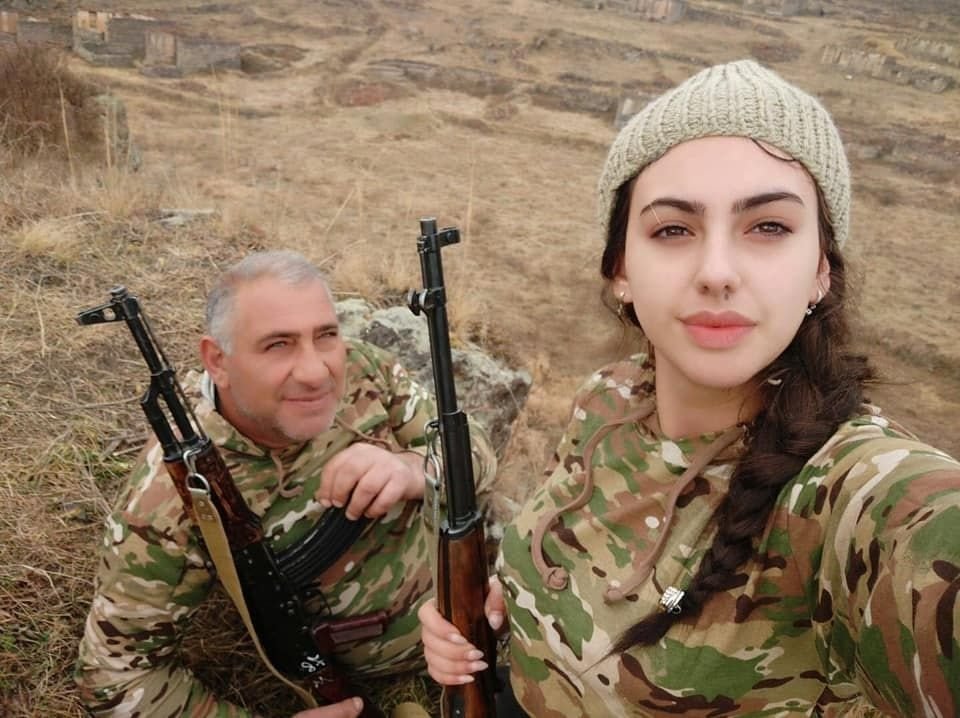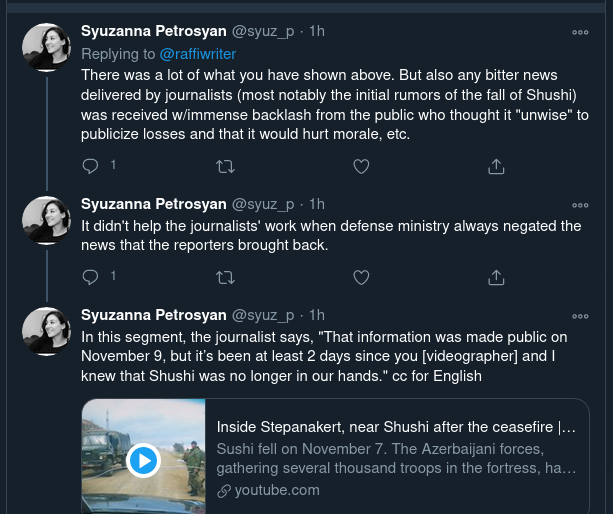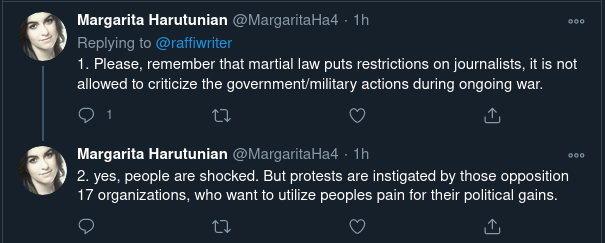People like this protestor in Yerevan seem to believe that if more volunteers had rushed to the front, the war could have been turned around. But that was just not the case. /1
https://www.aljazeera.com/news/2020/11/12/armenia-protestsve.
https://www.aljazeera.com/news/2020/11/12/armenia-protestsve.
The political crisis in Armenia right now has several sources. One of them may well be the way this war was conveyed and understood in local news. /2 https://cpj.org/2020/11/demonstrators-attack-rfe-rl-office-in-armenia-assault-2-journalists/
On Twitter, one could watch the devastating effect of the TB2 drones and Israeli munitions -- daily. One could see the relentless loss of territory and equipment. One could see that if Shushi could not be defended, nothing could. /3
Armenian Defense officials strove daily to put a positive spin on things. It was a misguided strategy because it did not prepare the population for this outcome. But anyone who watched Donald Rumsfeld during the Iraq war will recall that this is what defense officials do. /2
So then one has to ask, "How was the Armenian media covering this conflict?" Did they challenge the MoD? Did they reveal any of what we now know were problems: low morale, soldiers sick with covid and other ailments? How did they report the devastating use of UAVs? /3
Was it a lot easier to find stories in the Armenian press about drones getting shot down (a very rare occurrence) than the daily toll those drones were taking -- first eradicating NKR's air defenses, then armor, then groups of soldiers, some as small as a dozen? /4
I will never forget this photo. It says so much, I can't unpack it all here. It echoes an Armenian TV spot I saw about millennial volunteers training with wooden rifles. It speaks of will, courage, and the all-of-society spirit of defense that Armenians brought to this. /5
But was this type of things framed as "The call has been heeded!"? Or was this framed with unsentimental analysis? How would a military expert evaluate it? As heroism, or as an alarming signal: an ill-equipped force digging into the ageing and unprepared? /6
I want to stress that I am not criticizing any particular Armenian journalist or outlet. Some journalists have been very courageous, working in immensely challenging situations to report, and I admire them. /7
News coverage in wartime is immensely challenging. Here in America, journalism as an industry struggled with the run-up to the Iraq war, and afterward the field had to confront those shortcomings, and it was painful. /8 https://www.nybooks.com/articles/2004/02/26/now-they-tell-us/
At this moment, the people chanting "Nikol is a traitor!" seem to believe he had military options that he clearly did not. So, this "information gap" seems central to the crisis. It begs the questions: How much of that was the fault of the message, how much the messenger? /9
From across the Atlantic, I don't know the answer to this question. But since the protests began this week, it has been on my mind, and I am curious to hear what you think. If this was an issue, by reflecting on it, Armenian journalism would only become stronger. /10
I have been getting some responses to this. Thank you, @syuz_p for these thoughts. I'm tacking your thread to the bottom of this here.
I am also adding this @MargaritaHa4.

 Read on Twitter
Read on Twitter